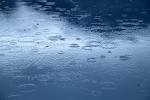
There is no higher quality source of water available to us than rainwater. Rainwater that is collected on roofs and stored appropriately represents a sustainable source of water ideal for use inside and outside the home. The cleanest water is always that which falls freely from the sky. The natural water cycle is very efficient in screening out contaminants that are normally found in ground water and other sources. Rainwater does not come in contact with the soil, and so it does not contain contaminants such as harmful bacteria, dissolved salts, minerals or heavy metals. Rainwater is healthy and is soft water so, among other things, you will use less soap.
You will use rainwater for-
Health reason:
You see the value in pure fresh natural rainwater
You do not want chemicals added to your drinking water
You wish to drink pleasant tasting water
Your water supply is salty or hard, has odors or contains heavy metals
You consider rainwater better for your family’s health and you want to take control of what your family drinks
Financial reasons:
To store water at an economical cost
To save money on your water bills
Rainwater can aid self-sufficiency, providing a back-up supply in case of water restrictions.
On rural properties, rainwater can provide a better quality potable supply than river, bore or dam water.
You can use rainwater for
-bathing
-dish washing
-car washing
-food preparation
-flushing
-garden watering
How to collect rain water:
-put a big bowl or a bucket over the roof top or in the lawn. put a cover as soon as the bowl or the bucket is full.
Best ways to improve and manage your rainwater
Quality. It is recommended that you:
• Stop leaf litter and debris from entering the tank, as this can cause water
discolouration, odour and encourage the growth of microorganisms. A leaf litter
guard or a leaf diverter can be used in areas with overhanging trees.
• Prevent things like bird droppings and dust building up on the roof and washing
into the tank when it rains. A device that diverts the first flush of rainwater can
prevent these contaminants from entering the tank.
• Prevent animals and insects such as mosquitoes from entering the tank by
sealing or covering the tank, and screening any openings with mesh. This will also
ensure children cannot access the tank.
• Maintain and inspect your roof and gutters every 6 months.
Stormwater should NOT be used for drinking or food preparation.
You may also like to read:
Views :4294



